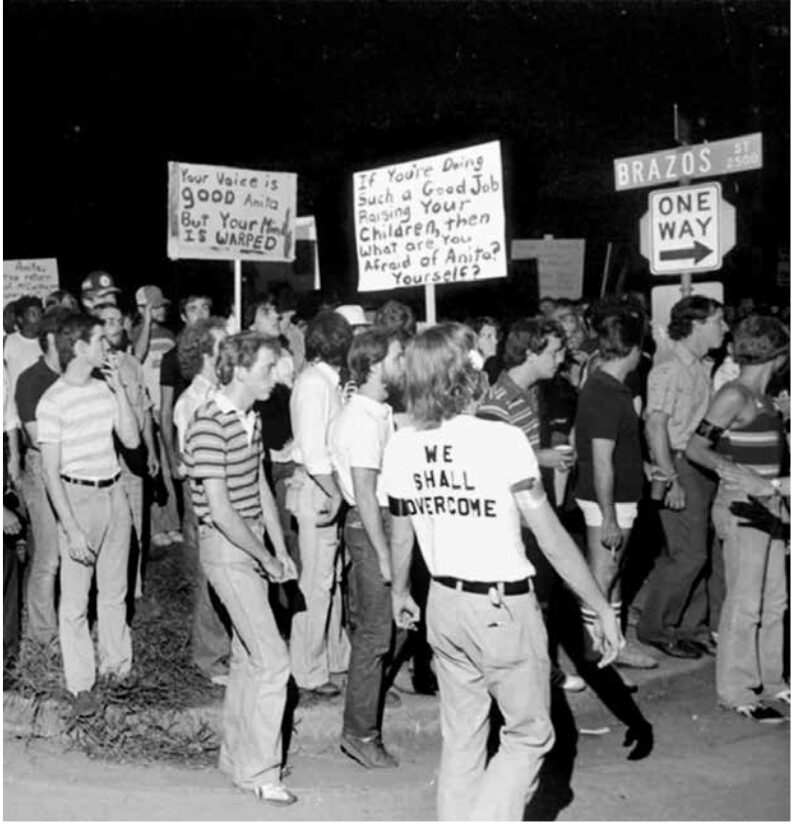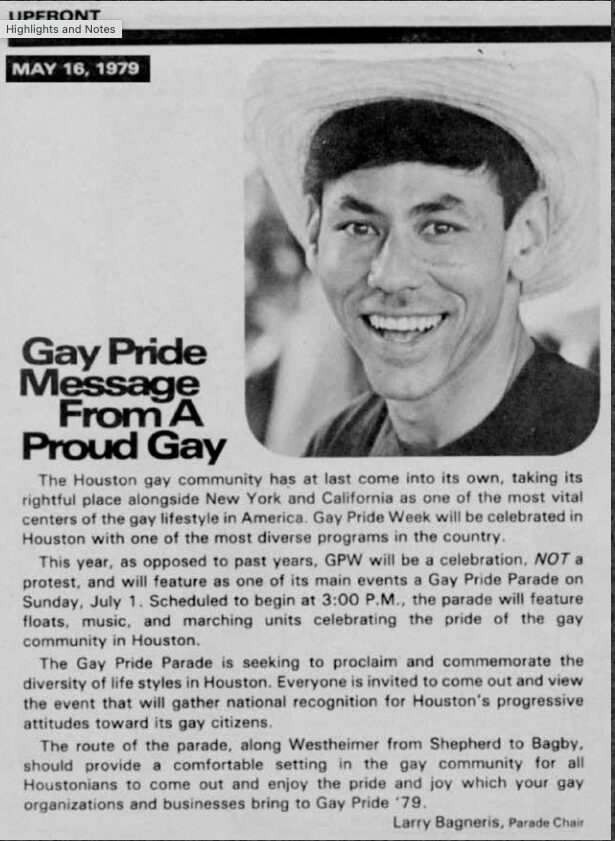Courtesy: The Botts Collection
Larry Bagneris is a mainstay in New Orleans’ gay community, but his activism started in Houston where he helped launch the city’s first Pride parade in 1979 and became the first Black president of the LGBTQ+ Political Caucus.
Bagneris just released a new memoir, Call Me Larry: A Creole Man’s Triumph over Racism and Homophobia. In an interview with Houston Matters host Craig Cohen (audio above), tells his story.
Bagneris was a key figure in the fight for civil rights, advocating for both Black and LGBTQ+ communities. He grew up the son of a Creole family — people of mixed French, African, Spanish, and Native American ancestry. But he was always keenly aware of the racism embedded in New Orleans society and has early memories of children calling him the N-word.

Growing up Catholic, Bagneris grappled with his sexual orientation early on. He knew he liked boys from a young age. While his family was accepting, the broader world around him was not.
As a young man, Bagneris prayed relentlessly to change how he felt — and even sought out a psychiatrist in a desperate attempt to alter his sexuality. But when the doctor suggested shock therapy, he stormed out. By chance, he walked straight into a protest against segregation — marking the beginning of his journey into civil rights activism.
Bagneris graduated high school in 1964, as the country was going through dramatic social changes and enrolled in Xavier University, the only historically Black, Catholic university in the United States. As a student, he also frequented the French Quarter, where queer culture was flourishing, but he still struggled with coming out and fully embracing his identity.
A professor who saw his internal conflict invited Bagneris to take a trip to New York after graduation to get a broader view of the world. He ended up at the Stonewall Inn, where the famous Stonewall Riots of 1969 happened that essentially launched a new movement for gay rights. His visit was just before that famous moment but, just the same, he experienced a police raid of the bar. He escaped, but the moment showed him what it felt like to be part of a real community.

After college, Bagneris got a job in Houston as an executive in the stationery division of Foley’s. He felt comfortable in Houston as it was queer-friendly, laid-back, and multiracial. Starting in 1970 and in the years that followed, queer media and organizations began to spring up together with the many bars that would come to populate Montrose. There was programming on the radio station KPFT and publications like the Nuntius.
It was still conservative Texas, though, and as a gay Black man in the early 70s in Houston, he had to confront racism and homophobia.

In June of 1977, the Texas State Bar Association invited Anita Bryant to appear at their Houston convention. Bryant was a very prominent singer and anti-gay activist. Her arrival in Houston galvanized the gay community and was a “coming out” for Bagneris as a prominent activist and leader.
In 1979, Bagneris founded the Houston Pride Parade that continues to this day. While we see it now as an established institution with lots of support from local government officials and local police, in the late 1970s, it was a herculean effort to get the city onboard with such a high-profile event.

Great Job & the Team @ Houston Public Media Source link for sharing this story.




